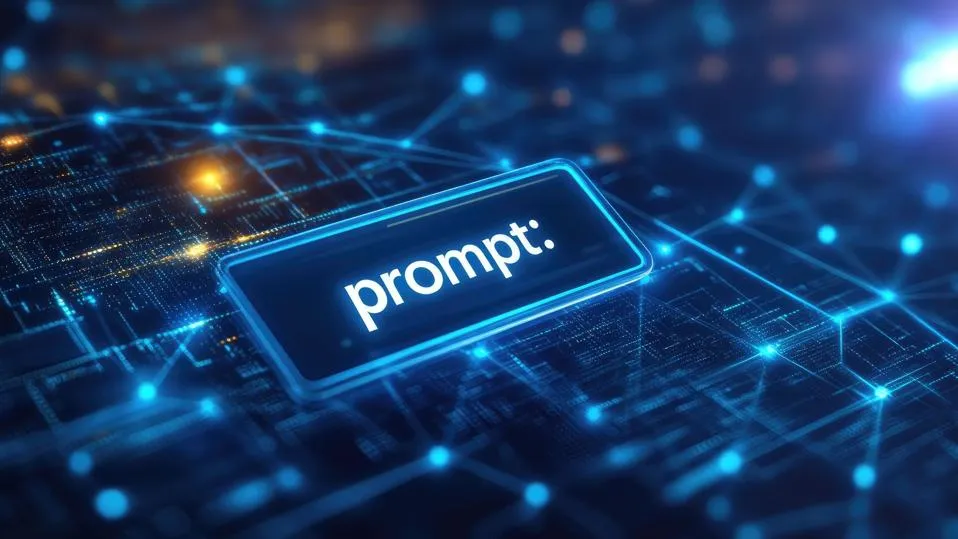
The Hidden World of AI: Prompt Engineering and Jailbreaking
Artificial intelligence is becoming an integral part of everyday life, with tools like chatbots and image generators seamlessly woven into our interactions. For most people, these systems seem simple — type in a request, get a response. But beneath the surface, there’s a thriving underground economy built around understanding, manipulating, and sometimes even circumventing these AI models to unlock their full potential.
From Hobby to High-Paying Career: The Rise of Prompt Engineering
When AI-powered tools like GPT and DALL-E first made headlines, users quickly realised something fascinating: the way you phrase a request can dramatically change the output. A slight tweak in wording or structure can mean the difference between a mediocre response and a perfect one.
This realisation gave birth to prompt engineering — the art and science of crafting precise inputs to get optimal results from AI. What started as enthusiasts swapping tips online has transformed into a highly sought-after professional skill.
“I spent hundreds of hours testing different approaches to get consistent, high-quality results from AI tools,” says an online seller who goes by PromptMaster. “Most people only tap into about 10% of what these systems are actually capable of.”
Today, skilled prompt engineers have turned their expertise into lucrative careers through:
- Selling prompt templates on platforms like PromptBase and PromptHero, where prices range from $5 for basic prompts to over $500 for advanced business applications.
- Consulting for companies looking to integrate AI into their workflows.
- Landing full-time jobs as prompt engineers at tech firms, with salaries surpassing $150,000.
- Teaching prompt writing courses, some of which attract thousands of students.
What separates an ordinary prompt from a high-value one? The best prompts go beyond simple instructions. They incorporate formatting, context, role-playing elements, and detailed output specifications to guide the AI toward producing consistent, high-quality responses.
Businesses, in particular, are willing to pay top dollar for prompts that can automate marketing copy, customer service interactions, or product descriptions. A well-crafted prompt that consistently generates high-converting ad copy can be worth thousands of dollars to the right buyer.
The Science Behind Effective Prompting

While it might seem like just clever wording, prompt engineering is rooted in understanding how AI models function. Experts in this field recognise patterns in AI responses and use strategic techniques to improve output.
For instance, breaking a request into smaller steps often produces better results than asking for everything at once. Skilled prompt engineers also leverage system prompts to provide context, use chain-of-thought reasoning to improve logical output, and craft instructions that reduce AI errors like hallucinations or refusals.
As AI evolves, so do these techniques. What worked well for GPT-3 may not be as effective for GPT-4, requiring prompt engineers to constantly test and refine their approaches. This ongoing need for adaptation ensures that demand for expert prompt crafting isn’t going away anytime soon.
Jailbreaking: The Controversial Side of AI Manipulation

While prompt engineering is a recognised skill, a more contentious practice exists in the AI underground: jailbreaking — the act of bypassing AI safety measures and restrictions.
AI developers implement safeguards to prevent harmful content generation, safeguard sensitive information, and limit impersonation of real individuals. These restrictions are meant to align AI behaviour with ethical guidelines, but some users see them as excessive limitations.
As a result, communities dedicated to jailbreaking have sprung up on platforms like Discord and Reddit, where members share (and sometimes sell) methods to bypass these restrictions. Jailbreaking tactics include:
- Framing requests as fictional scenarios to confuse AI content filters.
- Using specific wording patterns that exploit system loopholes.
- Employing prompt injection techniques to override built-in constraints.
- Breaking requests into multiple steps to gradually push the AI past its limitations.
Whenever AI companies patch vulnerabilities, jailbreakers find new ways around them, creating an ongoing cat-and-mouse game. Some have even turned their expertise into a business, offering “unrestricted” AI services or selling access to constantly updated jailbreaking techniques.
The motivations behind jailbreaking vary. Some claim they are exposing flaws to improve AI security, while others believe AI should be unrestricted. For many, it’s simply a technical challenge — one they enjoy solving.
The Grey Area: Pushing Boundaries Without Breaking Rules
Between legitimate prompt engineering and outright jailbreaking lies a grey zone — a set of advanced techniques that expand AI capabilities without necessarily violating terms of service. These include:
- Knowledge extraction: Finding ways to surface information that the AI has been trained on but doesn’t readily provide.
- Personality simulation: Making AI mimic specific writing styles or personas.
- Capability unlocking: Discovering hidden functionalities not explicitly advertised.
These practices raise ethical and legal concerns. If an AI were trained on copyrighted content, does extracting specific knowledge violate copyright law? If an AI contains personal data, what are the implications of techniques that reveal it? The rapid advancement of AI forces us to grapple with these questions in real time.
The Underground AI Economy: A Multi-Million Dollar Industry

Beyond simple prompt sales, the AI economy has grown into a sophisticated financial ecosystem that includes:
- Investment funds backing AI prompt marketplaces.
- Escrow services for high-value, prompt transactions.
- Subscription models offering regularly updated prompt collections.
- Verification systems to ensure prompt effectiveness.
- Affiliate marketing programs where creators earn commissions on prompt sales.
Top players in this space are pulling in six-figure incomes purely from prompt-related services. And as more businesses adopt AI, the demand for specialized knowledge continues to rise.
How AI Companies Are Responding
AI developers are well aware of these underground activities. Some have embraced the prompt engineering community, creating official marketplaces and certifications. Others have doubled down on security, implementing:
- Advanced content filtering to block sensitive prompts.
- Reinforcement learning to make AI more resistant to manipulation.
- Frequent security audits to identify and patch exploits.
- Legal action against those distributing jailbreak techniques.
The future of this underground economy depends on how AI capabilities and restrictions evolve. If companies make AI harder to manipulate, high-level prompt engineering skills will become even more valuable. On the other hand, if restrictions loosen, the need for jailbreaking may fade.
Why This Matters to Everyone
Even if you’re not buying or selling prompts, this underground economy has broad implications:
- It highlights the gap between what AI can do and what most users achieve.
- It raises ethical questions about who controls AI’s capabilities.
- It shows how quickly new industries emerge around cutting-edge tech.
- It foreshadows security challenges as AI becomes more advanced.
Ultimately, this hidden world offers a glimpse into AI’s true potential — and the challenges of balancing innovation, security, and accessibility.
So, the next time you chat with an AI, remember: the way you phrase your request might just be the key to unlocking something far more powerful than you expect.
You May Also Like
How Venture Capital Is Rethinking Teams and ROI
Ut enim ad minim veniam, quis nostrud exercitation ullamco laboris nisi ut aliquip ex ea commodo con
AGI: The Quest for Artificial General Intelligence
Ut enim ad minim veniam, quis nostrud exercitation ullamco laboris nisi ut aliquip ex ea commodo con
How Startups Can Stay Safe in 2024!
Ut enim ad minim veniam, quis nostrud exercitation ullamco laboris nisi ut aliquip ex ea commodo con




